From towering skyscrapers to the humble garden shed, fasteners play an integral role in holding our world together. For decades, stainless steel has been the reigning champion of the fastening world, but a new contender is making its mark. Fiberglass, aluminum, wood, and other non-metallic alternatives to stainless steel are rising in popularity and revolutionizing the fastening game.
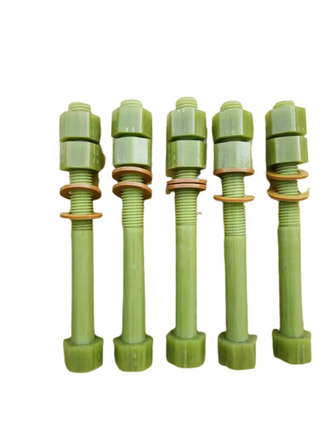
As more companies make the switch from stainless steel to fiberglass why more companies are switching to nonmetallic fasteners using these futuristic materials, it’s time we took a closer look at what’s behind this trend and how it’s set to change industries across the board. In this article, we’ll explore why businesses are ditching traditional sheet metal for something lighter, stronger, and downright innovative – welcome to the era of non-metallic fasteners!
What are Non-Metallic Fasteners?
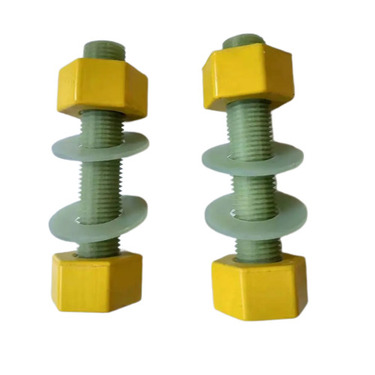
Non-metallic fasteners are a type of fastening hardware, designed to join or secure two pieces together without the use of metal materials. They are made from various non-metal materials such as plastic, fiberglass, ceramics, and composite materials. These alternative materials offer unique properties that make them well-suited for specific applications where traditional metal fasteners may not be ideal.
Factors to Consider When Choosing Metal Fasteners
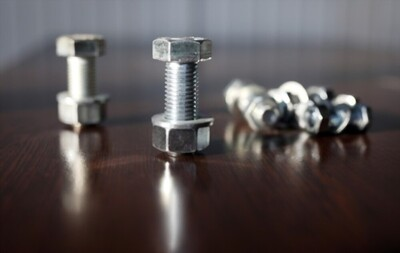
When selecting metal fasteners for various applications, it’s essential to consider several factors that can impact the performance and longevity of the fastener. These factors are crucial in ensuring that your chosen fastener will be suitable for your specific needs.
Corrosion Resistance
One of the main considerations when choosing a metal fastener material is its corrosion resistance. Some metals, such as stainless steel, steel, and aluminum, offer better corrosion resistance than others like galvanized steel. In environments where moisture or chemicals are present, selecting a corrosion-resistant fastener material is vital.
Dissimilar Metals
The use of dissimilar metals in hardware can lead to galvanic corrosion, which commonly occurs when certain metals come into contact with one another. To avoid this issue, it’s recommended to use compatible materials in hardware or utilize an insulating barrier such as aluminum or plastic Tef-Gel between two dissimilar metals.
Temperature Resistance
High temperatures can cause some metals to lose their strength or change shape. It’s necessary to select a metal fastener that can withstand elevated temperatures without compromising its integrity.
Abrasion Resistance
In applications where there will be constant movement or friction between the fastener and other components, abrasion resistance becomes critical. Harder materials like stainless steel can withstand wear and tear better than softer materials like plastic.
Installation Requirements
Different types of metal fasteners have varying screw holes and installation methods; self-tapping screws require a full pilot hole and screw hole, while blind rivets don’t need any pre-drilled screw holes. Choosing the right type of screw holes and installation process for your application can make assembly more efficient and reduce labor costs.
Vibration Reduction
In mechanical applications where vibrating nuts, screws, or bolts becoming loose is a concern, selecting a fastener with nylock nuts or other features designed to reduce vibration can help ensure the nuts, screw or fastener remains securely in place.
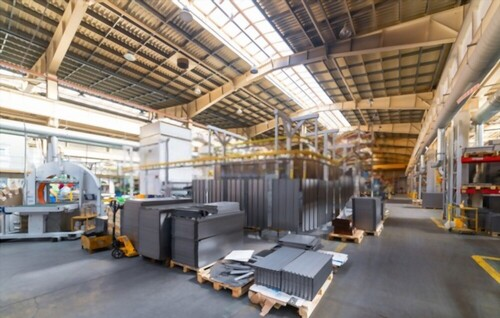
By considering these factors, you’ll be better equipped to choose the right metal fasteners for your specific needs. Keep in mind that while metal fasteners have their advantages, non-metallic materials like fiberglass offer key benefits like lighter weight, corrosion resistance, and dimensional stability.
Some common types of non-metallic fasteners include nylon machine screws, wood, aluminum, and plastic hanger bolts, and aluminum, and fiberglass self-tapping machine screws. They can be used in a wide range of industries and applications such as electrical enclosures, marine environments, and industrial assembly lines.
Why Choose Non-Metallic Fasteners over Metallic Fasteners?
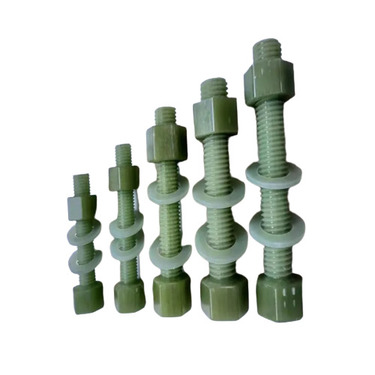
Non-metallic fasteners are becoming a popular choice for various industrial and mechanical applications. This is primarily due to their unique properties that make them more advantageous than their metallic counterparts. Let’s take a closer look at the key benefits of non-metallic fasteners.
Corrosion Resistance
Materials like stainless steel, galvanized steel, and aluminum may corrode when exposed to harsh environments or when paired with dissimilar metals, leading to galvanic corrosion or corrosion resistance. On the other hand, non-metallic materials like fiberglass and plastic can withstand corrosive substances without deteriorating or weakening.
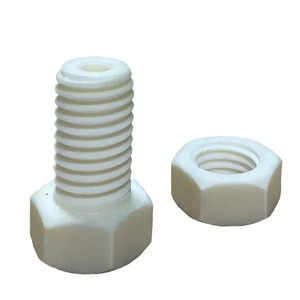
Lighter Weight
Non-metallic materials generally have a lower density compared to metals like steel or aluminum. This lighter weight contributes to easier installation and handling of components in various applications, such as marine environments and enclosures for electrical applications.
Reduced Vibration
Metal fasteners tend to vibrate loose when sheet metal is exposed to constant vibration, which could pose safety risks and damage hardware components. Non-metallic fasteners offer better vibration absorption properties of sheet metal that help reduce vibration issues in machinery and equipment.
High Temperatures Resistance
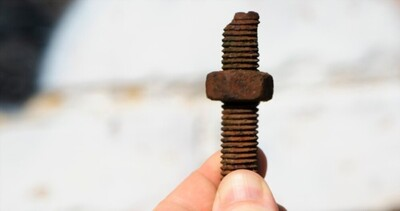
Some non-metallic materials can withstand high temperatures without losing their dimensional stability or strength. This characteristic makes them ideal for use in heat-sensitive applications where metal fasteners might fail due to excessive heat exposure.
Cost-Effective Solutions
using non-metallic materials for manufacturing fasteners can often result in cost savings compared to traditional metals, particularly if large quantities are required. The lower cost of materials like fiberglass and plastic, combined with the potential for reduced maintenance and longer service life due to their inherent properties, makes non-metallic fasteners a more cost-effective option for many companies.
Improved Insulation Properties
Non-metallic materials provide better insulation compared to metallic alternatives in electrical applications. They do not conduct electricity, making them an ideal material choice for preventing electrical shorts between mounting brackets, screws, hanger bolts, and other components.
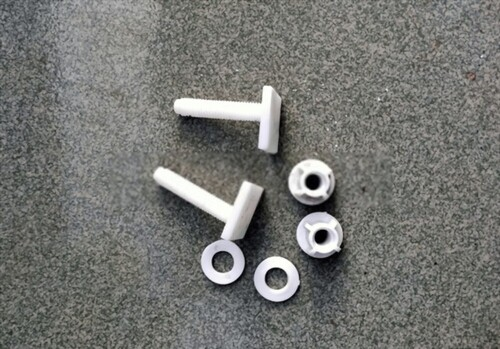
No Need for Tef Gel or Other Anti-Seize Compound
Using metal fasteners in marine applications usually requires using anti-seize compounds like Tef Gel to prevent corrosion and seizing. With non-metallic fasteners, there is no need for these additional materials, simplifying the installation process. To sum up, non-metallic fasteners offer several advantages over their metallic counterparts in terms of corrosion resistance, lighter weight, reduced vibration, high-temperature resistance, cost-effectiveness, and improved insulation properties. These benefits make them a preferred choice for various industrial and mechanical marine applications, where durability and long service life are essential.
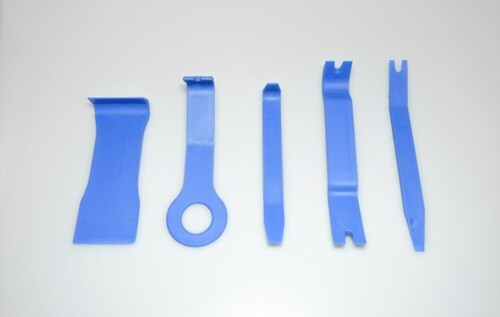
In conclusion, the shift towards non-metallic fasteners is largely driven by their numerous advantages over traditional metal options. Companies across various industries recognize these benefits and are increasingly adopting non-metallic alternatives for their corrosion resistance, lighter weight, superior strength, vibration reduction capabilities, dimensional stability at high temperatures, suitability for electrical applications, and cost-effective solutions.
What fasteners can be used with fiberglass?
There are several types of fasteners that can be used with fiberglass, including:
1. Self-tapping screws – These screws are designed to tap their own threads into the fiberglass material without the need for a pre-drilled hole.
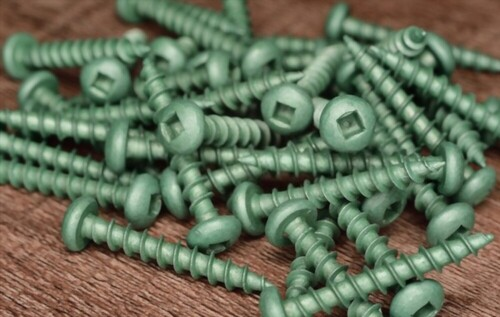
2. Rivets – Rivets can be used to secure two pieces of fiberglass sheet metal together without the need for screws or bolts. They are particularly useful for attaching thin sections of fiberglass.
3. Bolts machine screws and nuts – Bolts, and nuts can be used to secure fiberglass to metal or other materials. They are ideal for applications where additional strength is required.
4. Adhesive bonding – Adhesive bonding can be used to attach fiberglass to a variety of materials, including metal, wood, and plastic. This method is particularly useful when a strong, permanent bond is needed.
In general, the choice of fastener will depend on the specific application and the type of fiberglass being used. It is important to choose a fastener that is appropriate for the load and stress that will be placed on the joint.
Can fiberglass be as strong as metal?
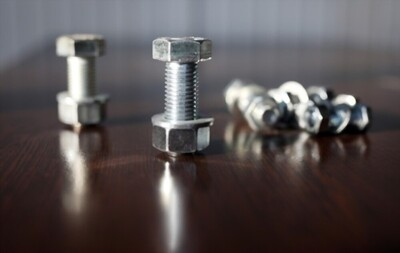
Fiberglass can be as strong as metal, and in some cases, even stronger. Fiberglass has a high strength-to-weight ratio, is resistant to corrosion, and is more flexible than metal. However, the strength of fiberglass can vary depending on the quality of materials and manufacturing process, so it is important to choose a reputable manufacturer and ensure proper installation to maximize its strength and durability.
How strong are fiberglass bolts?
The threaded fiberglass bolts offered by DSI Underground are specifically designed for use in mining and tunneling applications. These bolts are made from high-strength fiberglass and are designed to provide excellent load capacity and corrosion resistance. They feature a threaded design that allows them to be easily installed and tightened using standard tools. In addition, they are lightweight and easy to handle, making them an ideal choice for use in underground mining environments. Overall, threaded fiberglass bolts are a reliable and cost-effective option for securing fiberglass in a variety of applications.
The Future of Fiberglass Fasteners

As industries continue to evolve, the demand for materials that offer durability, resistance, and cost-effectiveness increases. Fiberglass fasteners are becoming a popular choice for various industrial applications due to their unique properties and advantages over their metallic counterparts. In this section, we will discuss what lies ahead for fiberglass fasteners in terms of innovation, adaptation, and growth.
One area where we can expect significant growth is the use of fiberglass fasteners in marine environments. Traditional metal materials like galvanized steel and even stainless steel and stainless steels can often corrode when exposed to salt water or harsh weather conditions. However, fiberglass offers excellent corrosion resistance against these elements making them perfect for use in the marine environment in applications such as rod holders, mounting brackets, and hanger bolts.
Another promising avenue for fiberglass fasteners is high-temperature environments where traditional metal components may fail due to heat exposure. Fiberglass exhibits remarkable heat resistance compared to commonly used metals like steel or aluminum. This makes it an ideal candidate for use in applications where high temperatures are a concern.
In addition to its impressive durability and resistance properties, fiberglass also boasts other desirable attributes that make it an attractive option for future innovation. For instance, non-metallic materials like fiberglass do not cause galvanic corrosion when they come into contact with dissimilar metals. This feature can be especially advantageous in industrial settings or welding, where assembly involves different types of metals.
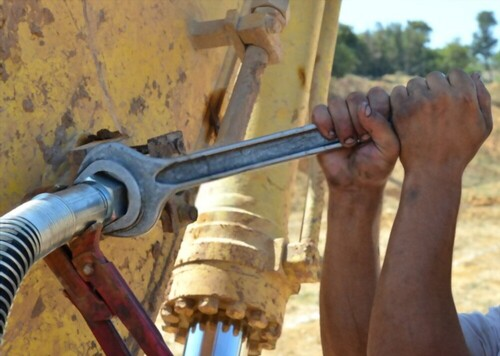
As industries look for more sustainable materials and solutions, the demand for fiberglass fasteners will only continue to grow. With ongoing research and development efforts focusing on improving the properties of fiberglass and other non-metal materials, it is only a matter of time before these innovative fasteners become even more prevalent in various sectors, paving the way for a future where metal fasteners are no longer the default choice.
In conclusion
Choosing between metallic fasteners and non-metallic fasteners boils down to evaluating factors such as application requirements, environmental conditions, and long-term performance expectations. As we’ve seen in this article, many businesses are making the switch due to the numerous benefits that come with using materials like FRP (Fiber Reinforced Polymer) fasteners.
With advances in material technology continuously improving their properties and applications, fiberglass and other non-metallic options stand poised to revolutionize how we think about fastening solutions. In essence, they represent not just an exciting trend but a glimpse into a more efficient and eco-friendly future for industries worldwide.
